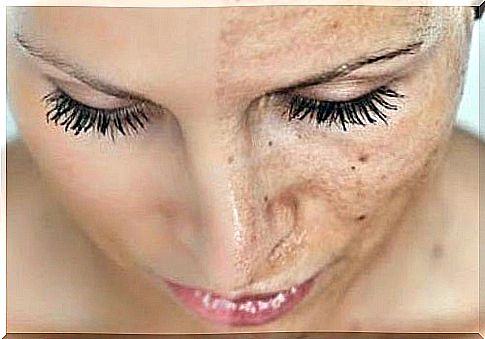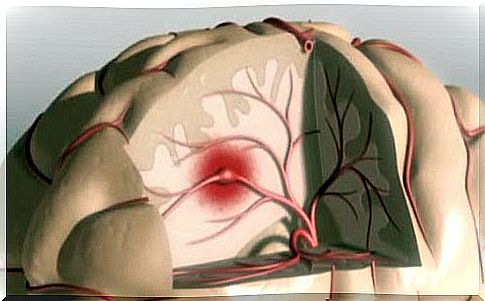Sleeping Little And Badly: 12 Consequences

Scientific studies show more and more often that sleeping little and badly has consequences on our daily life and on our health. Lack of restful sleep has multiple consequences, both physically and mentally.
According to experts, you should sleep between 7 and 8 hours a night to maintain an optimal physical, emotional and mental state. However, changes in current lifestyle have greatly worsened the quality of sleep and the ideal time to rest.
To make you better understand all the negative effects you would encounter without a good rest, here are 12 consequences of sleeping little and badly.
Desire to overeat and nervous hunger
Lack of rest is linked to the desire to overeat, especially at night when the metabolism slows down. This causes us to consume more calories and carbohydrates, which facilitates weight gain.
Also, when we don’t sleep well, we tend to crave more fast food, even if we aren’t actually hungry.
Getting little sleep increases the risk of accidents

According to a study conducted by the National Sleep Foundation in the United States, those who do not sleep for at least 6 hours a day triple the risk of motor vehicle accidents caused by sleepiness, mainly due to the effect of eye coordination. Even without a vehicle with which to have accidents, the effects are still affected, as the lack of rest makes us more careless.
The immune system is weakened
Without restful sleep, our body does not rest properly and thus our immune system weakens. It is therefore easier to be affected by flus, colds and respiratory tract infections.
Emotional uncontrollability
When we don’t rest properly, the brain regions involved in emotions are up to 60% more active, which makes us react in an uncontrolled and unsuitable way. This was shown by a 2007 study conducted by the University of California and Harvard Medical School.
We are physically less attractive

There is no doubt that restful sleep is the key to looking more beautiful and keeping fit. Several studies have shown that when we don’t sleep well, we look less fresh, which is mainly noticeable on our face. Over time, this can worsen and cause premature aging.
Weakening of brain tissue
Going through even one sleepless night can cause weakening and loss of brain tissue. This loss is calculated by measuring the amount of blood of two brain molecules, which usually increases following brain damage.
Problems with concentration and memory
Not getting enough rest or not having good sleep affects our ability to concentrate and our memory. This, then, can have consequences on our learning ability and on the memorization of concepts.
Increases the risk of stroke

In the long run, not sleeping well and not following good sleeping habits can increase the risk of stroke. The risk of stroke is particularly high in adults and the elderly.
Risk of obesity
Nervous hunger increases in the hours when we can’t sleep. Numerous studies state that little sleep changes our metabolism and the level of hormones such as ghrelin and leptin, which regulate appetite.
It increases the risk of cancer
It may seem that the two have nothing to do with each other, but research has shown that those who don’t sleep well run a higher risk of developing colorectal polyps, which can become malignant over time. . Further studies also link lack of good sleep to breast cancer.
Heart disease

A study published in Harvard Health Publications shows that poor sleep increases hypertension, blocked arteries and heart problems.
Shorter life expectancy
A good rest is synonymous with well-being and more years of life, as demonstrated by a study in the journal Sleep , which analyzed the sleeping habits of 1741 people over a long period. In fact, according to the results of this study, those who sleep better have a longer life than those who sleep less.









